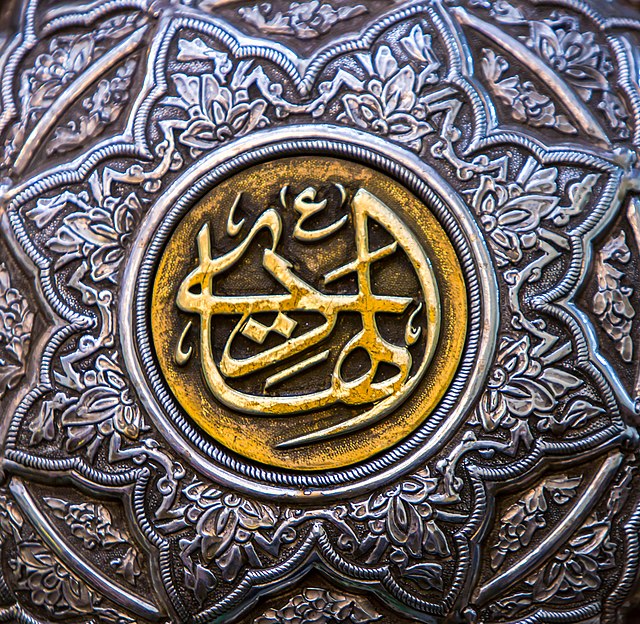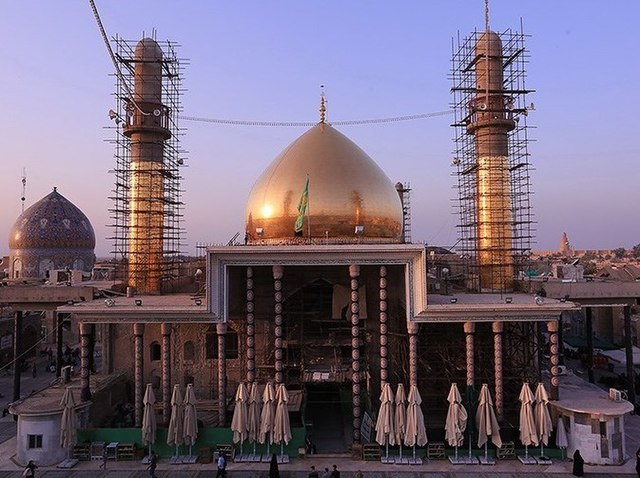ʿAlī ibn Muḥammad al-Hādī was a descendant of the Islamic prophet Muhammad and the tenth Imam in Twelver Shia, succeeding his father, Muhammad al-Jawad. Born in Medina in 828, Ali is known with the titles al-Hādī and al-Naqī. After the death of his father in 835, most followers of al-Jawad readily accepted the imamate of Ali, who was still a child at the time. Drawing parallels with the story of young Jesus in the Quran, Twelver sources attribute an exceptional innate knowledge to Ali which qualified him for the imamate despite his young age.
Calligraphic inscription of al-Hadi's name on the zarih of Husayn ibn Ali, located in Karbala
Al-Askari shrine in Samarra, located in modern-day Iraq, before the 2006 bombing
The shrine was damaged by bombings twice in 2006 and 2007
Al-Askari shrine in 2017, partially rebuilt after the bombings
In Shia Islam, the Imamah is a doctrine which asserts that certain individuals from the lineage of the Islamic prophet Muhammad are to be accepted as leaders and guides of the ummah after the death of Muhammad. Imamah further says that Imams possess divine knowledge and authority (Ismah) as well as being part of the Ahl al-Bayt, the family of Muhammad. These Imams have the role of providing commentary and interpretation of the Quran as well as guidance.
The name of the last Twelver Imam Muhammad al-Mahdi as it appears in al-Masjid al-Nabawi





